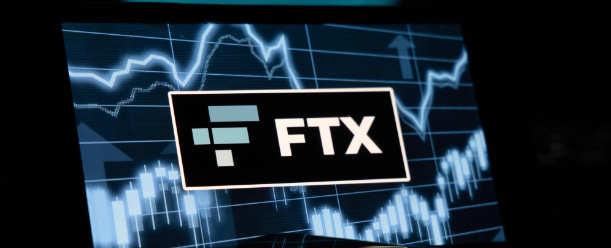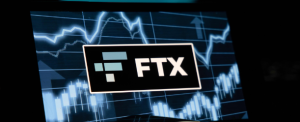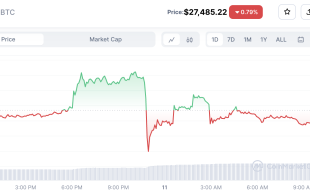Join Our Telegram channel to stay up to date on breaking news coverage
FTX founder Sam Bankman-Fried, currently facing indictment, accused the lawyers from Sullivan & Cromwell, representing the bankrupt crypto exchange, of acting as prosecutors in his case.
In a filing on Monday, Bankman-Fried claimed that FTX’s outside counsel conducted witness interviews, handed over incriminating documents, and even contributed to the development of the government’s legal theories.
Bankman-Fried’s defense lawyers at Cohen & Gresser argued in their brief that FTX’s outside counsel effectively became agents of the prosecution, bypassing the government’s obligation to disclose evidence that could prove Bankman-Fried’s innocence. Although Bankman-Fried did not mention Sullivan & Cromwell in the filing, the firm serves as lead counsel to FTX in its Chapter 11 bankruptcy proceedings.
Fried Files Motions Seeking Dismissal of Charges in Sweeping Indictment
In a recent development, FTX founder Bankman-Fried has filed a series of motions requesting U.S. District Judge Lewis Kaplan of Manhattan to dismiss most of the charges brought against him by the government. The charges include allegations of defrauding customers, making illegal campaign contributions, and bribing Chinese officials.
Bankman-Fried, who maintains his plea of not guilty, argues in his motions that the prosecutors hastily pursued an ill-conceived criminal case to find a convenient “villain” to blame for the cryptocurrency market downturn known as “crypto winter” that occurred last year.
Interestingly, Bankman-Fried’s legal team did not mention Sullivan & Cromwell’s alleged involvement in the prosecution as a reason to dismiss the case. Instead, they requested the judge to compel the prosecutors to provide Bankman-Fried access to the extensive information that FTX and its lawyers have already disclosed to the government.
The new filing states that FTX, as a private company, is not obligated by the government’s constitutional duty to provide defense lawyers with documents and other materials that could assist Bankman-Fried in proving his innocence. Additionally, FTX has declined to waive attorney-client privilege regarding materials that could benefit Bankman-Fried, despite selectively waiving it when responding to government requests.
If Bankman-Fried can show that FTX is functioning as an extension of the government, he might may access the information shared by the company with prosecutors. This would include any material that could help him question the credibility of government witnesses or weaken the case against him.
Sullivan and Cromwell Criticized for FTX Legal Handling During Bankruptcy
Sullivan & Cromwell faced criticism from the U.S. Trustee and others for failing to disclose comprehensive details about their work for FTX, which they began representing shortly before the exchange sought bankruptcy last year. However, FTX’s current CEO, John Ray, who succeeded Bankman-Fried, defended the engagement with Sullivan & Cromwell, stating that the company required their expertise to pursue assets for FTX customers and handle ongoing criminal and congressional investigations. In January, a Delaware bankruptcy judge approved the firm’s engagement.
Both a spokesperson for Bankman-Fried Best Wallet - Diversify Your Crypto Portfolio
Traditionally, the Justice Department has encouraged corporations to cooperate with prosecutors when a corporate executive faces criminal charges. Companies that proactively disclose wrongdoing and provide evidence from their internal investigations often receive favorable outcomes, such as deferred prosecution or non-prosecution agreements.
Bankman-Fried argues that John Ray and FTX’s lawyers exceeded their roles and effectively became an “arm of the prosecution.” The filing claims that bankruptcy records show FTX’s external attorneys provided “tens of millions of dollars of free work to the prosecution,” including over 150 hours of consultation with prosecutors.
Fried Alleges Selective Privilege Waiver by FTX in Defense Filing
According to Bankman-Fried’s filing, FTX and its lawyers have willingly waived attorney-client privilege at the government’s request, even providing prosecutors with their lawyers’ notes from witness interviews. However, they adamantly refused when Bankman-Fried requested that FTX and related entities waive their privilege.
Bankman-Fried acknowledged FTX has no incentive to assist him as they see him as a convenient scapegoat. The defense brief argues that this situation emphasizes the need to ensure prosecutors cannot exploit FTX’s involvement to evade their responsibility to safeguard Bankman-Fried’s rights as a defendant.
More News
Biden denounces “wealthy crypto investors’” access to tax loopholes
Michael Saylor believes the launch of a US CBDC is good for Bitcoin
World’s largest digital asset manager Grayscale is seeking 3 new crypto ETFs
Join Our Telegram channel to stay up to date on breaking news coverage


